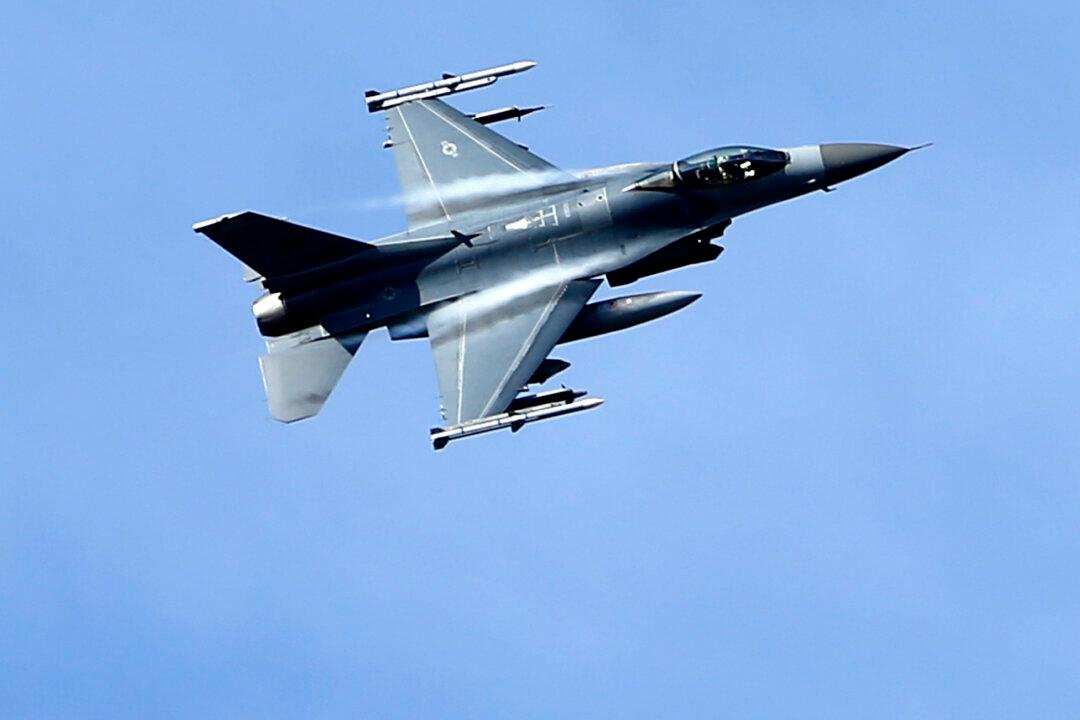NATO fighter jets scrambled six times last week to escort Russian military aircraft that violated Lithuanian airspace, according to the main news agency for the Baltic region.
NATO Fighters Escorted Russian Aircraft That Violated Airspace 6 Times in a Week
NATO fighter jets scrambled six times last week to escort Russian military aircraft which violated international airspace over the Baltic Sea.

A U.S. military fighter jet participates in a NATO Baltic Air Policing Mission practice mission in the Tapa training area, some 43 miles southwest of Tallinn, Estonia on April 8, 2015. Mindaugas Kulbis/File Photo/AP

Isabel van Brugen
Reporter
|Updated:



